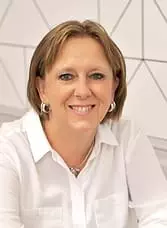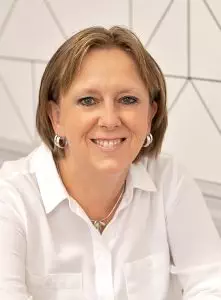Rachel Priestley
How courageous is your leadership?
We have never needed courageous leaders more...
by Karen Amos
Leadership is all over the news. Firstly there's the Post Office scandal. Much of this will be new to many people, but the fact is, this is far from a new issue. I was first aware of it around 2010, as an acquaintance was one of the Post Masters in question. He ended up taking out a huge loan to patch up a financial hole, not of his making, or risk prosecution and lose the family business. The impact was devastating on his physical, mental and financial wellbeing. The situation was picked up and consistently reported on by media outlets such as Private Eye, Radio 4 and Panorama, but still no meaningful movement from either the Post Office, or indeed the government, despite them being well aware of this. People jailed, made bankrupt, family breakups and suicides. Still no-one stepped forward. Finally, a mainstream broadcaster ITV, created prime-time drama series and the government eventually commits to action.
Same with the ongoing situation with Ofsted inspections. It wasn't until the tragic death of Ruth Perry following her school's downgrading following an Ofsted inspection that a light was cast on what teachers, leadership teams and particularly Head Teachers have known for years - the process isn't fit for purpose. Untold stress and suffering within schools in the name of raising standards. Teachers and Heads reconciling themselves with feeling sick every week as an inspection was imminent and careers being wrecked, not to mention the toll on mental health. As with the Post Office scandal, this isn't 'just' the ruining of lives and livelihoods - people died.
So what's the cause of the problem? Tech? Comms? Process?
No, the cause lies with with leadership - specifically, cowardly, dishonest, unethical and self-serving leadership, which in truth is no leadership at all.
There are the leaders who focus on process, making sure everything can be monitored and that systems are in place. Those setting out the ‘business as usual’ mantra, when life is anything but. The leaders that force the perpetual direction of travel that involves people being asked to do more and more with fewer and fewer resources until those people break. Those priding themselves on being ‘decisive’, whilst never once pausing to look back and check where everyone else is on this journey. And if anyone’s lagging behind? - well, they need to get their backside in gear and quick. And finally, those leaders and business owners who seek to exploit the system, state, or people in order to make a quick buck.
Then there are inspirational leaders out there who ‘do the right thing’ by looking after their teams, clients and communities. These are the people who 'bend’ the rules where need be, provide reassurance and are understanding and empathetic to the needs of others. The leaders who understand the impact on those going through huge daily challenges such as the cost of living crisis and balancing home and work with pressures on childcare for example.
I believe we need strong, ethical leadership now more than ever and Authentic Leadership sets out the blueprint for this. The need for courage, vision, compassion and a strong set of ethical values. Above all, the ability to put these into positive action. As I’ve said before, Authentic Leadership isn’t, ‘Take me as you find me – warts and all.’ Anyone trying to lead a team with that attitude is, quite rightly, destined for failure. And it's certainly not 'fluffy bunny'. No, Authentic Leadership is the toughest thing you will ever do. It means having the courage to do what’s needed and the heart to do what’s right.
Here are a few coaching questions to get you started on checking how courageous your leadership style is...
- What do I stand for as a leader? What are my 'lines in the sand' I will never cross?
- Am I ever guilty of not following my own principles and ethics - and what causes this?
- How will I know when I'm 'doing the right thing'?
- What are the signs I may not be acting courageously as a leader - seen in myself and others? What impact does this have on me?
- What one thing could I put into place today that would ensure I was doing the right thing by others?
If you’d like to learn more about how to take a coaching approach to Managing Difficult Conversations and Effective People Management, we’ve just launched our Summer 2024 public courses.
Click on the link below to find out more:
Or why not EMAIL US, or book in an informal chat using the button below. We'll find out about the support you need and provide you with a no-obligation quote.
 Karen Amos is an executive coach and Director and Founder of BrightBird Coaching & Training. She supports business owners, managers and education leaders to get the best out of themselves and their teams. She brings a down-to-earth approach to improving working lives through better leadership, communication and working relationships.
Karen Amos is an executive coach and Director and Founder of BrightBird Coaching & Training. She supports business owners, managers and education leaders to get the best out of themselves and their teams. She brings a down-to-earth approach to improving working lives through better leadership, communication and working relationships.
Tel: 07714 855757 or email: [email protected]
Are your good habits going bad? Try scenario planning...
Are your good habits going bad? Try scenario planning...
By Karen Amos
In a couple of recent blogs, I introduced techniques to check in on yourself when setting new habits for a positive work-life balance. (See the end of this blog for links.)
I’d like to introduce a third tool to help you set habits that stick. This is one to overcome all those problems and barriers and just general pesky ‘life in general’ stuff that crops up to derail all our good intentions.
At first, this approach can seem a bit negative coming from a coach – after all, we’re meant to be the ‘think positive and it will happen people’ aren’t we? Well, for one thing, I’m not into magical thinking, and for another, I’m a down-to-earth middle-aged Yorkshire woman, so like to take a realistic and more pragmatic approach to what actually works! And this does!
So what is ‘Scenario Planning’?
Scenario planning is a project planning/strategic thinking approach to identify things that may go wrong and derail your project or plan. It's a way to build in mitigating actions, which will give your plans more chance of staying on track.
How is this useful to build better habits?
We often start off setting new habits with really good intentions. We get off to a good start, fired up and raring to go. Then reality strikes. This might be a change in priorities with incoming work and deadlines, or even someone going off sick, meaning our workload changes. The result is, we have to change our plans and never quite seem to get back on track again.
So whilst it seems all doom and gloom to spend time identifying what could go wrong with our lovely positive plans, scenario planning can actually be the key to building in some longevity into our habits. If we know what might go wrong, we’re already prepared mentally and can often put in place mitigating actions to help ensure we’re not permanently derailed.
How does it work?
Here are a few coaching questions to help you get started. (Don’t spend too much time on this though - it's more important you crack on and take action. If you identify something new as you go along, you can always add it to the list later.)
- What might get in the way or impede my progress in embedding this habit?
- How likely is this to happen? (Try a scale of 0-5 - 0 = Definitely won't/5 = Definitely will)
- Are there any particular circumstances in which this would happen?
- Are there any things that happen at certain points in the year I need to take into account?
- What can I put in place to mitigate or remove the impact of this?
Hopefully you now have a good start to set habits that will stick. Remember, this tool can also be used for any plans you’re making, whether work-related, or personal.
I have a couple more blogs about Staying on track for a better work-life balance (HERE) and If and then... Setting the conditions for a better work-life balance (HERE), for more coaching questions to help you on your way.
If you would like support with your Time Management, Work-Life Balance or general wellbeing at work, call us on 07714 855757, or email [email protected]
Find out about our training courses and coaching using the links below:
Or why not EMAIL US, or book in an informal chat using the button below. We'll find out about the support you need and provide you with a no-obligation quote.
 Karen Amos is an executive coach and founder of BrightBird Coaching & Training. She supports business owners and managers who are feeling the pressure, to get the best out of themselves and their teams. She brings a practical, down-to-earth approach to improving working lives through better leadership, communication and working relationships.
Karen Amos is an executive coach and founder of BrightBird Coaching & Training. She supports business owners and managers who are feeling the pressure, to get the best out of themselves and their teams. She brings a practical, down-to-earth approach to improving working lives through better leadership, communication and working relationships.
If and Then… Setting the Conditions for Successful New Habits
If and Then… Setting the Conditions for Successful New Habits
By Karen Amos
I wrote in an earlier blog about a technique to check in on yourself when setting new habits for work-life balance. (Click HERE to read more).
I thought I’d share another great way to help build and maintain habits. This is to set ‘If and Then’ conditions to your actions.
Here are a couple of examples:
A few years ago I decided to start running to get fit. But…
If I got home from work and sat down with a cuppa… then I got comfy and didn't go out for my run.’
However…
If I got home from work, put down my bag and immediately put on my running kit… then I’d go straight out of the door and have my run.
__________________________________________
I also had a client who was wanting to lose weight to have a more healthy lifestyle by eating more fresh food. The problem was that…
If she did her food shopping after work when she was hungry… then she would also buy lots of junk food and chocolate at the same time.
However…
If she went food shopping in the morning, or had a healthy snack before shopping… then she didn’t have the food cravings and succumb to buying unhealthy food.
So here are a few tips to help build those habits:
- Set out your conditional ‘If and Then’ statements to identify where the problem lies (See the examples above)
- Set out an ‘If and Then’ statement that will overcome this problem
- Build this intention into your diary or to-do list, so you’re conscious of it at the beginning of the day
- Get an accountability buddy – whether it’s a colleague, friend, or family member – tell them your intention – you’re much more likely to take this action if someone else knows! This could even be an ‘If and Then’ itself!
If you’d like to find out more about building better habits, I have a couple more blogs about Setting up flags to know when you’re going off track (HERE) and Using Scenario Planning to Prevent Good Habits Turning Bad (HERE), with lots more coaching questions to help you on your way.
If you would like support with your Time Management, Work-Life Balance or general wellbeing at work, call us on 07714 855757, or email [email protected]
Find out about our training courses and coaching using the links below:
Or why not EMAIL US, or book in an informal chat using the button below. We'll find out about the support you need and provide you with a no-obligation quote.
 Karen Amos is an executive coach and founder of BrightBird Coaching & Training. She supports business owners and managers who are feeling the pressure, to get the best out of themselves and their teams. She brings a practical, down-to-earth approach to improving working lives through better leadership, communication and working relationships.
Karen Amos is an executive coach and founder of BrightBird Coaching & Training. She supports business owners and managers who are feeling the pressure, to get the best out of themselves and their teams. She brings a practical, down-to-earth approach to improving working lives through better leadership, communication and working relationships.
Ready to set a better work-life balance? Here’s how to stay on track…
Ready to set a better work-life balance? Here’s how to stay on track…
By Karen Amos
What is it about September? I get more of a giddy feeling and those ‘new start’ vibes than I do at the new year.
I guess it’s just the programming I experienced in my early years of starting back at school – new teacher, new clean text books to cover in really bad wallpaper… (Showing my age now!) and best of all, a new pencil case and stationery! (That’s still a biggie for me!)
The thing is, whether we’re working in education or not, this is a very popular time to make a 'new start'. The gym I attend is busier in September and October, everyone’s had a great summer holiday and people are ready to finally take control of that ever-elusive work life balance. Then reality kicks in, other people’s stuff becomes your stuff, the nights draw in, carb-rich food beckons and before we know it, we’re right back in our old, unhelpful habits.
So how to stop that slide?
I don’t believe it’s inevitable, but I’m not going to pretend it’s easy to do.
One key factor is being conscious of what’s going on. I wrote a blog post a while ago about boiling frog syndrome and that’s definitely one of the problems. (Click HERE if you’d like to find out more…)
Basically, boiling frog syndrome says if a frog is dropped in a pan of boiling water, (Yeah, I know, but don’t shoot the messenger, I didn’t invent the concept!) it will immediately recognise it’s too hot and jump out. But if we place the frog gently into luke-warm water and gradually warm it up, it will stay in the pan and boil to death, as it doesn’t recognise the water is too hot until it’s too late.
We too are that boiling frog. We fail to recognise when things are going awry until they’re having a detrimental impact on our time and wellbeing.
You know how it goes. You’re determined not to work every evening and weekend this time and you’ll definitely stick to your new healthy eating regime. But just one piece of work for a deadline on one Sunday evening, quickly becomes every evening and before you know it, you’re grabbing a handful of biscuits on the fly because you were too tired to make your healthy pack-up on a morning.
The solution? – Little Flags!
This is why I like to introduce my ‘little flags’ to clients. These flags are mini advance warning systems we can set in place when things are going well – i.e. right at the beginning of implementing our new habits. This means we’re in a good position to think clearly about the situation, without being overly influenced by outside influences and unforeseen circumstances.
Here are a few coaching questions to help you set out good habits and flags, ready for your new start:
- What is it that I would like to change?
- How will I know when I have succeeded? (What will be happening/ what will I be doing/hearing/seeing/feeling?)
- What are the ‘flags’ that will tell me I’m going off track? What will these be telling me?
- What action can I take to remove these now?
- What action will I take if one of my flags pops up to get back on track quickly?
I have a couple more blogs about Creating the Conditions to Succeed (HERE) and How to Prevent Good Habits Turning Bad (HERE), for more coaching questions to help you on your way.
If you would like support with your Time Management, Work-Life Balance or general wellbeing at work, call us on 07714 855757, or email [email protected]
Find out about our training courses and coaching using the links below:
Or why not EMAIL US, or book in an informal chat using the button below. We'll find out about the support you need and provide you with a no-obligation quote.
 Karen Amos is an executive coach and founder of BrightBird Coaching & Training. She supports business owners and managers who are feeling the pressure, to get the best out of themselves and their teams. She brings a practical, down-to-earth approach to improving working lives through better leadership, communication and working relationships.
Karen Amos is an executive coach and founder of BrightBird Coaching & Training. She supports business owners and managers who are feeling the pressure, to get the best out of themselves and their teams. She brings a practical, down-to-earth approach to improving working lives through better leadership, communication and working relationships.
3 reasons your team may be resistant to change – and what you can do about it!
3 reasons your team may be resistant to change – and what you can do about it!
By Karen Amos
I’ve been busy delivering the ‘Managing Change’ session from my Effective People Management programmes these last few weeks. This is definitely one of those subjects that at first glance seems easy, but is a veritable Russian doll when you start to unpack it.
I recall times throughout my career where change has been well implemented and accepted, indeed embraced by teams and many more times when I’ve just emitted an inward (and sometimes outward) groan when informed of yet another new strategy/change/initiative [delete as appropriate]. On that note, isn’t it strange what a word so positive as ‘initiative’ can invoke such an energy dump in a different context?
Whilst the vast majority of change is instigated with positive intentions – i.e. to make things better – it can so quickly invoke a negative response and be the cause of low staff morale and even increase staff turnover if handled badly.
Here are 3 reasons you may be experiencing resistance to change from your team (or even personally) and a coaching perspective on how to address this…
1. Your team doesn’t understand why the change is necessary
This is about supporting your team to understand the reason behind the change. There’s an understandable filter that takes place where information is cascaded down an organisation and people in less senior roles are, often rightly, given less detail than people who are more senior. I do think we need to treat people as the adults they are though. To paraphrase Nietzsche, the person with a ‘why’ can tolerate almost any ‘how’.
Solution:
Consider the perspectives and experience of your team. It’s easy to forget as a leader that we have much more information and control than those we manage. An honest appraisal, including the benefits of the changes and the consequences of not taking this course of action will always be appreciated. Over time, your teams will accept you’re trustworthy and there’s no game playing going on. Remember, if there is sensitive information you can’t share, be honest about that too.
2. People don’t feel involved or listened to
In the midst of all the activity in implementing a new change, time to discuss, consult and more importantly, listen can come a poor second. Remember that as manager and leader, you naturally have much more control and usually knowledge, about the change. It’s easy to forget that your team don’t share this.
Solution:
Hold regular check-ins with your team and allow people to voice their concerns. It’s understandable that you may not want to seek this out, lest it turn into another ‘moan-fest’, but hearing people out and giving information where needed will prevent people from lagging behind, or at worst being so engaged they decide to leave the organisation altogether.
3. Your people have ‘change fatigue’
Have you ever stopped to consider that change just seems to be a permanent fixture of working life? Lots of my clients comment that there’s never a pause to take a breath and reflect and let the changes embed. It’s either one change, then straight into another, or what’s more usual, multiple changes going on at the same time. It can be hard for teams and indeed ourselves as leaders, to truly evaluate what the impact of the change is. With this comes a sense of never quite achieving an end result, leading to frustration and low motivation.
Solution:
Ensure you consult with your team to build in mini-goals and celebrate progress and ‘wins’ throughout the change process. Where possible, give people a project, or part of a project to own and champion, in a way that plays to their strengths and things they enjoy if possible. That way, they can have more autonomy and also see they’ve played a clear part in achieving the overall goal. Whilst it’s not always possible, be conscious of implementing multiple changes and reduce these where possible to allow new ways of working to embed themselves, even for a short time. This will then be assimilated into your organisation’s culture and people will be more enthused for the next change.
I hope that helps with a little food for thought regarding change in your setting or organisation.
If you’d like to know more about how we can support your leaders and teams with 1-to-1 or team coaching, or would like to discuss our in-house live, online leadership programmes, you can:
Email us at: [email protected]
Or call us: 07714 855757
or click HERE to book in a short, no-obligation chat
Karen Amos is an executive coach and founder of BrightBird Coaching & Training. She supports leaders and managers to get the best out of themselves and their teams. She brings a down-to-earth, practical approach to improving working lives through better leadership, communication and working relationships.
Want to be a coaching manager? Here's the magic ingredient...
Want to be a coaching manager? Here's the magic ingredient...
By Karen Amos
I’m feel fortunate that there are lots of managers who are tuning into in how coaching can help them and their teams.
It’s probably no surprise that I firmly believe coaching can completely transform the behaviour, mindset and performance of teams in the workplace. In fact, I more than believe it, I’ve seen the results for myself.
The thing is in our ever-busy working lives, time is at a premium, so many people are looking for a magic ingredient that will turn them into a coach. The magic ingredient that means they can start to reap the benefits.
As a result, I thought I’d bring in a quick reality check around expectations and what you CAN do, to be a great coaching manager.
Let’s start off with a few of the ‘myths’ I encounter…
Myth 1 – Reading a coaching book will turn me into a great coach
Myth 2 – Getting a coaching qualification will turn me into a great coach
Myth 3 – Going on a coaching course will turn me into a great coach
Actually, all of the above will help. The bad news however, is that reading a book, getting a qualification, or going on a course will never turn you into an amazing coaching manager overnight.
In order to coach, you need to learn the skills and techniques to ask great coaching questions, along with other tools. But here’s the challenge…
If you don’t actually DO anything differently – if you never practice these techniques and skills, nothing will change.
I had an acquaintance who bought every self-help book known to human-kind – or so it seemed! The problem is none of it changed her life in the slightest. Does this mean the books didn’t work? Not at all. The fact is, not only did she rarely get past the first chapter, she never put any of her learning into practice – and if she did, not consistently.
So unfortunately you won’t be able to become a better coach through a process of osmosis, where learning will radiate off your bookshelf, or training course and magically transform you into the coach you’d like to be.
If these don’t work – what does?
This means getting out of your comfort zone. Walking the walk as a manager. Trying at least one approach, or question very consciously even once a day.
If you’re about to think, ‘Yeah, but it’s not that simple…’, then I would ask you to look inwards. I’m guessing you want to start coaching to help people change, to improve their performance. If that’s the case then we need to walk the walk as managers and leaders. Ask yourself, ‘should I be expecting people to change, do things differently and get out of their comfort zone, if I’m not prepared to do so myself?’
Another thing to consider is to build coaching conversations into your daily interactions. Any conversation with another person has the potential to be a coaching conversation. It involves listening and understanding the other person’s point of view, with a healthy dose of curiosity to explore what’s really going on and help them find their own solution to any problems.
Remember that coaching isn't about feeling clever whilst you fire lots of 'challenging' questions at someone. At it's heart, it's about great communication - taking the time to listen, understand and helping the other person work out a solution.
So go on, give it a go!
Coaching Question:
What one step could you put in place today to help you improve your coaching and communication skills?
If you’d like to know more about how our fully-interactive coaching skills courses can help you implement a coaching approach in your workplace, check out our coaching skills for managers mini-programmes. There's NO HOMEWORK and NO ROLEPLAY! Just lots of practical tools, approaches, discussion and practice, so you can put your learning into place straight away.
For schools and education settings
For business and organisations
Or check out our great value in-house training options:
For schools and education settings
For business and organisations
Or call us: 07714 855757
or click HERE to book in a short, no-obligation chat
Karen Amos is an executive coach and founder of BrightBird Coaching & Training. She supports leaders and managers to get the best out of themselves and their teams. She brings a down-to-earth, practical approach to improving working lives through better leadership, communication and working relationships.
Challenge or opportunity? You decide...
Challenge or opportunity? You decide...
By Karen Amos
As a small business owner, I don’t always have the luxury of lots of spare capacity or fall-backs when things quickly change. Such a thing happened recently when one of my support team decided to take up a new job opportunity. Whilst I’m gutted to be losing a key support, I do understand their reasons for moving on and wish them every success. Inevitably though, this still caused pressures within my business.
After my initial OMG moment, feeling like I should be a model for a Munch painting, I remembered what I did for a living, gave myself a shake and put my coaching hat on. This helped me to re-frame the situation and ask myself:
Is there another way to see this?
It was hard not to focus solely on the multitude of upcoming challenges - our brains are wired to concentrate on perceived dangers, so that's our default setting. Once I'd named what was going on, there were also many positive opportunities for my business that I might otherwise not considered. These included building future capacity, re-prioritising my offer to clients, revisiting my pricing policy and many others. It’s easy to just go with the flow, particularly when things are going well, rather than giving things a bit of a shake up. Let’s face it, who doesn’t like a bit of comfort zone now and again - again, we can thank our brain for this - keeping us out of danger and seeking safety.
It's so easy for businesses and organisations to just grow organically in response to our market or circumstances, in good times and bad, but now and again we need a good reason to go back to the drawing board.
I would just like to add this isn’t about being all Pollyanna about things. As a slightly grumpy, middle-aged Yorkshire woman, Pollyanna isn’t my default setting I can assure you! As good old Tony Robbins says, ‘There’s no point standing in the garden chanting “There are no weeds, there are no weeds” when you’re surrounded by freaking weeds! The only thing that will help is to roll up your sleeves and pull them up!’
So let’s start to see the challenges as practical opportunities for change and getting out of our comfort zone and make the most of things!
If you’re struggling with a challenge or change, ask yourself the following coaching questions:
- What are the opportunities, or positives in this challenge?
- Is there a way to slow things down a little to create some thinking space?
- If so, what are the priority things and what can I put down?
- If I was starting from scratch here, what would I choose to do?
Have you turned a challenge into an opportunity recently? Let’s share the positive mindset!
If you’d like to find out how our 1-to-1 and team coaching programmes and training can help you get ‘unstuck’ and move forward this year…
Check out our website: www.bright-bird.co.uk
Call us: 07714 855757
or click HERE to book in a short, no-obligation chat
Karen Amos is an executive coach and founder of BrightBird Coaching & Training. She supports leaders and managers to get the best out of themselves and their teams. She brings a down-to-earth, practical approach to improving working lives through better leadership, communication and working relationships.
Feeling overloaded? The solution might not be less work...
Feeling overloaded? The solution might not be less work...
By Karen Amos
I’ve just had a couple of interesting sessions with clients, exploring how to create capacity within their organisation and their life in general. Many of us know the feeling of being up to, if not over capacity and the stress, pressure and often anxiety this brings. It’s almost a fact of modern working life - that feeling there’s just no wriggle room and that you daren’t even think about what happens if one more thing goes wrong, or there’s a bout of sickness or a resignation.
I’m a coach not a magician, so I can’t manifest time that doesn’t exist – although it wouldn’t be a bad superpower would it? What I can do often feels a little magical though in the turn-around it brings people, but there’s no woo-woo involved – I simply help my clients find clarity.
Often when I start working with clients, particularly around any ‘Time Management’ type issues, they expect me to do the usual, ‘Prioritise your tasks… delegate…, etc., etc.’ There's very much a time and a place for these tools and I frequently use these along with other time management techniques, this usually isn’t my starting point.
The fact is that most time management issues stem from a mindset issue. This is a kind of good news/bad news situation though.
The bad news is that this means the root of the problem lies with how you view it, so no blaming other people for your problems. You know, the whole, 'My boss is so mean to me' routine. A bit harder to do when you're self-employed mind.
The good news is that simply changing how we think, can completely transform our situation.
When I work with my clients, we look at what’s going on… then look at what’s REALLY going on! That’s the key to coaching – getting right down to the root cause of the problem. We often find this too difficult to do on our own, as we’re viewing the world through a filter of our emotions, values, experiences and expectations. A good coach will help you work out exactly what your pressure points are and also your priority outcomes. (Hint – we often confuse activity with outcomes and these really, really are not the same thing!)
One of the questions I often ask my clients is:
What would change if you accept the fact there will always be too much to do in any given day/ week/ month/ year?
Along with:
What would you do differently if you believed your wellbeing and happiness was just as important as everyone else’s?
By asking these types of questions, I can bring a fresh pair of eyes for my clients, helping them make decisions and create the space they need to work on the stuff that really counts. So to paraphrase that paragon of Stoic philosophy, Marcus Aurelius, the difficulty is often not what's going on around us, but our response to this.
If you'd like to find out how our 1-to-1 coaching programmes can help you get 'unstuck' and move forward this year...
Call us: 07714 855757
or click HERE to book in a short, no-obligation chat
Karen Amos is an executive coach and founder of BrightBird Coaching & Training. She supports leaders and managers to get the best out of themselves and their teams. She brings a down-to-earth, practical approach to improving working lives through better leadership, communication and working relationships.
Tired of playing the bad guy? Why not play yourself instead....?
By Karen Amos
‘I’m not scared of playing the bad guy’.
I hear this phrase so many times on my travels as a coach and I have to confess, I’ve said it myself in the past.
But let’s just unpick this for a moment. Why when we need to give negative feedback, or have a difficult conversation with someone, do we feel we’ve no option but to be the ‘Bad Guy’? Shouldn’t we just be doing what’s right? I know from my own experience that there are many reasons for saying this phrase.
Here are a couple:
1. Fear – Of what the other person might do or say, or of things getting out of control. Sometimes it’s the fear of not being liked.
2. Lack of options – Often I felt low on resources – either of potential solutions to the problem, or lack of interpersonal skills to deal with this.
The worst part of this was for me, I know I’m not a ‘Bad Guy’. I now recognise I’m a good, kind person, who likes to be fair to others and always tries to do the right thing. This is most of us right?
This situation is a good example of where Authenticity pays dividends. What if you didn’t need to be the ‘Bad Guy’ and could instead, get the right result just by being yourself? Sounds good? Just think, less anxiety, sleeping well, knowing you did your best, increased personal responsibility for the other person and less of the ‘blame game’…. The list goes on…..
The secret is to take a coaching approach to giving feedback and difficult conversations. This approach means you’re not there to ‘fix’ the person, but to work collaboratively with them to find a workable solution. The first step is to be clear what you and they want out of the situation and to work together to find the solution.
Yes, I acknowledge there may be occasions where the person concerned refuses to accept their personal responsibility and you’ll have to deal with this accordingly, but from experience these people are in the minority.
By implementing this Authentic Leadership/coaching approach, I've found that raising issues with people more often than not, results in a positive, constructive outcome. I frequently hear examples from my clients where they've been dreading a conversation, but by implementing this approach have had surprisingly positive outcomes. For example, people who have been placed on performance management have still thanked their manager for their support and as a result have addressed and resolved the issues raised.
No-one likes giving negative feedback and certainly no-one likes to receive it, but to know you’ve truly done your best to work with the person to find a positive solution to the problem must surely rest better with you than having had to play the ‘Bad Guy’ again.
If you'd like to find out more about our value for money in-house Managing Difficult Conversations training courses, click here:
If you'd like to find out more contact us on:
Tel: 07714 855757 or email: [email protected]
Karen Amos is an executive coach and founder of BrightBird Coaching & Training. She supports business owners and managers to get the best out of themselves and their teams. She brings a down-to-earth, practical approach to improving working lives through better leadership, communication and working relationships.
- 1
- 2












